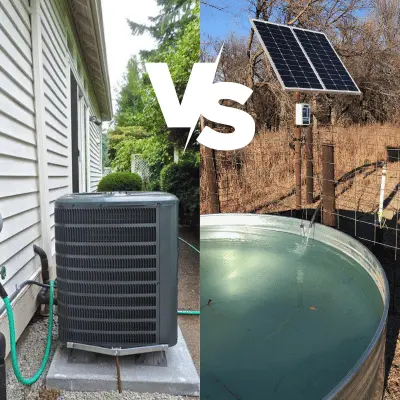Comparing the Costs and Benefits of Solar Water Pumps vs. Traditional Pumps
Water pumps are essential for many different applications, from irrigating crops to supplying drinking water to remote locations. For years, traditional electric pumps have been the go-to option for many people, but solar powered water pumps are gaining popularity. In this article, we will compare the costs and benefits of solar water pumps versus traditional pumps, so you can make an informed decision on which option is best for you.
Cost Comparison
When it comes to upfront costs, traditional pumps are typically less expensive than solar pumps. However, solar pumps can offer significant savings in the long run. Traditional pumps require electricity to operate, which can result in high energy bills. In contrast, solar pumps use energy from the sun, which is free 365 days of the year. Plus, solar powered water pump will operate even under cloudy or overcast conditions. Once installed, solar pumps require minimal maintenance, which translates into long-term cost savings.
Reliability
In terms of reliability, both traditional and solar-powered water pumps can provide consistent and reliable water supply. However, traditional pumps are susceptible to power outages, which can result in a loss of water supply. Solar pumps, on the other hand, can provide reliable water supply even in the event of a power outage. This is especially important for those who rely on their water pump for critical applications such as livestock watering or crop irrigation.
Ease of Installation
Traditional pumps typically require professional installation, which can be time-consuming and expensive. You’ll need to connect a traditional AC pump into a breaker box on the property, which may force you to hire an electrician or upgrade other electronics to handle the electrical load. In contrast, solar pumps can be installed without the need for extensive electrical connections or wiring, and can be installed easily by the property owner without the need for an electrician. This makes them an excellent option for remote locations where access to professional installation services may be limited.
Longevity
Solar pumps typically have a longer lifespan than traditional pumps. This is because solar pumps have fewer moving parts and require less maintenance. Additionally, solar panels have a lifespan of 25-30 years, making them a long-term investment that can provide reliable water supply for decades.
Both traditional and solar-powered water pumps have their advantages and disadvantages. Traditional pumps are less expensive upfront but can result in high energy bills over time. Solar pumps, on the other hand, require a slightly higher upfront investment but offer significant long-term cost savings and environmental benefits. When considering which option is best for you, it’s essential to evaluate your specific needs and consider factors such as cost, reliability, ease of installation, and longevity.

